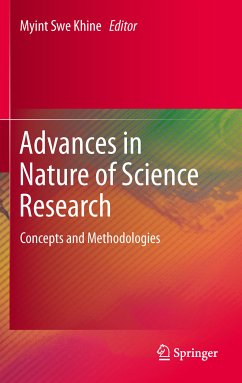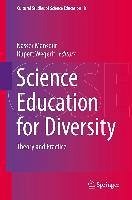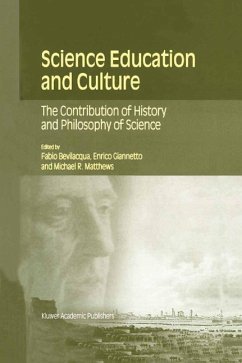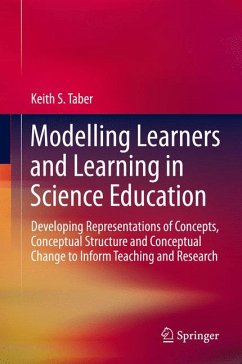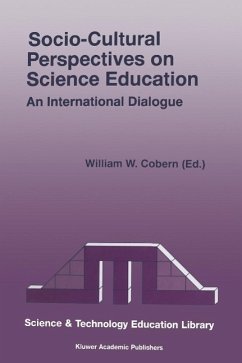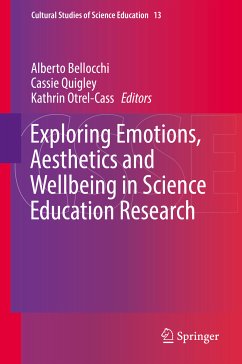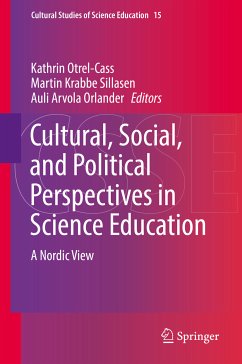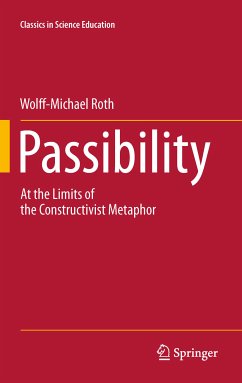
Passibility (eBook, PDF)
At the Limits of the Constructivist Metaphor
Versandkostenfrei!
Sofort per Download lieferbar
104,95 €
inkl. MwSt.
Weitere Ausgaben:

PAYBACK Punkte
52 °P sammeln!
This book argues that the 'constructivist metaphor' has become a self-appointed overriding concept that suppresses other modes of thinking about knowing and learning science. Yet there are questions about knowledge that constructivism cannot properly answer, such as how a cognitive structure can intentionally develop a formation that is more complex than itself; how a learner can aim at a learning objective that is, by definition, itself unknown; how we learn through pain, suffering, love or passion; and the role emotion and crises play in knowing and learning.In support of the hypothesis that...
This book argues that the 'constructivist metaphor' has become a self-appointed overriding concept that suppresses other modes of thinking about knowing and learning science. Yet there are questions about knowledge that constructivism cannot properly answer, such as how a cognitive structure can intentionally develop a formation that is more complex than itself; how a learner can aim at a learning objective that is, by definition, itself unknown; how we learn through pain, suffering, love or passion; and the role emotion and crises play in knowing and learning.
In support of the hypothesis that passibility underlies cognition, readers are provided with a collation of empirical studies and phenomenological analyses of knowing and learning science-in schools, scientific laboratories and everyday life-all of which defy a constructivist explanation. The author argues that 'passibility' constitutes an essential factor in the development of consciousness, with a range of essential experiences that cannot be brought into the linguistic realm. His exploration is guided by concepts such as 'otherness', passion, passivity and undecidability, and concludes by resituating the construction metaphor to accord it its proper place in a more comprehensive theory of learning.
In support of the hypothesis that passibility underlies cognition, readers are provided with a collation of empirical studies and phenomenological analyses of knowing and learning science-in schools, scientific laboratories and everyday life-all of which defy a constructivist explanation. The author argues that 'passibility' constitutes an essential factor in the development of consciousness, with a range of essential experiences that cannot be brought into the linguistic realm. His exploration is guided by concepts such as 'otherness', passion, passivity and undecidability, and concludes by resituating the construction metaphor to accord it its proper place in a more comprehensive theory of learning.
Dieser Download kann aus rechtlichen Gründen nur mit Rechnungsadresse in A, B, BG, CY, CZ, D, DK, EW, E, FIN, F, GR, HR, H, IRL, I, LT, L, LR, M, NL, PL, P, R, S, SLO, SK ausgeliefert werden.



